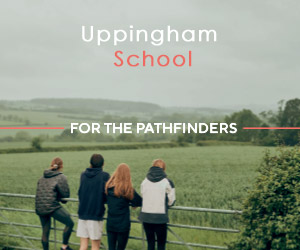
Facing The Future
09.02.22Universities in the UK should continue to explore how they can deliver online learning to some students while ensuring they communicate their intentions clearly to students, experts have said.
Julian Sladdin and Bronwen Bracamonte of Pinsent Masons were commenting after debate intensified recently over the extent to which online learning should continue within UK higher education following the easing of Covid-19-related restrictions.
Last year the Office for Students (OfS) wrote to institutions asking them to undertake a review of their compliance with consumer law and to assure the regulator of their ongoing compliance with the guidance the regulator has produced on consumer protection law.
The OfS guidance is directly relevant to what universities promise students about the nature of their teaching and assessment, an issue that has been pertinent over the last two years when institutions have been forced to rethink how they deliver courses in a way which complies with public health regulations in force during the pandemic. This led to an uptick in online learning, with a hybrid model of some face-to-face teaching and some remote teaching becoming common in the sector more recently.
However, the easing of public health restrictions across the UK has spurred recent debate over the extent to which remote teaching should continue within the higher education sector.
Michelle Donelan, the universities minister in England, said she would be in contact with institutions to reinforce her message that “students deserve to have the full face-to-face teaching experience they would have received before the pandemic” and that “online learning should only be used to supplement this”. Donelan said students should be applying for refunds if they are not satisfied with the service they are receiving.
This message was reiterated by education secretary Nadim Zawahi in an open letter written to students last month. In his letter, Zawahi said it was his expectation that “universities should deliver face-to-face education” and that online learning “should only ever be used to complement and enhance your learning experience, not detract from it”.
Zawahi highlighted the rights of students to raise complaints with the Office of the Independent Adjudicator for Higher Education (OIA), which is the independent student complaints ombudsman service for higher education in England and Wales, if they are not satisfied with the nature of the service they are receiving. In doing so, he flagged the scope they may have to receive compensation through the complaints process.
However, higher education policy platform Wonkhe challenged what it described as Zawahi’s “invitation to revolt”. Jim Dickinson, associate editor at Wonkhe, suggested that students would encounter difficulties in raising complaints of the kind Zawahi had advocated. Dickinson suggested complaints in relation to hybrid or online learning may only succeed where institutions had gone into specifics in relation to the expected hours of ‘face-to-face’ and online learning and where these terms have been breached.
Sladdin and Bracamonte of Pinsent Masons said the debate over online learning and hybrid models is a nuanced one and that universities should not be pressured into a full return to face-to-face learning where this is not appropriate. They said online learning can be a very effective tool to attract a diverse student population, given the flexibility that it brings, and it can produce better teaching and education outcomes, depending on the course concerned.
Sladdin and Bracamonte said as long as student terms and conditions are upfront, clear, intelligible, unambiguous and timely in relation to the split of online and face-to-face learning then higher education institutions will be compliant with their obligations under consumer law.
Sladdin said: “Face-to-face teaching does not always offer the best pedagogical outcomes, and universities should review and be explicit in setting out areas where they are likely to use the tool of online learning to enhance the student experience. Under consumer law, clear unequivocal information should be provided to students at registration in order to allow them to assess the course’s suitability to their requirements.”
Bracamonte said: “Online learning offers increased flexibility and can enhance pedagogical opportunities and universities should not retreat from the learning opportunities discovered and the investments made in this area during the pandemic. As online learning is an effective tool, universities should not be cowed into trying to avert the need for it, but rather explore how it can add to the overall learning experience.”
COPYRIGHT © Abode2 2012-2024














